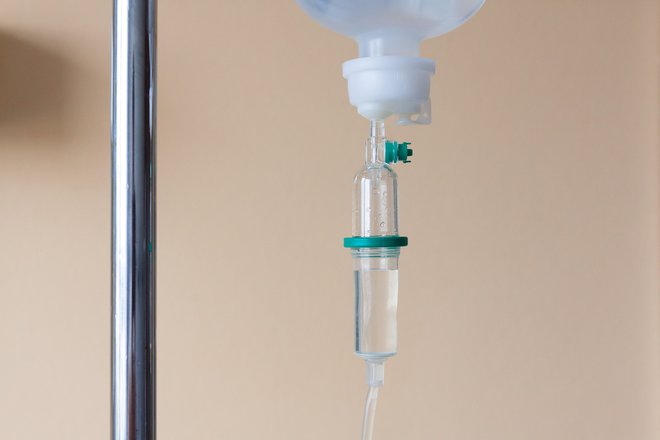Chemotherapy, next to radiotherapy and surgery, is one of the so-called systemic treatment. This is a complicated method that requires a lot of resources the patient is administered drugs that affect the cell cycle (i.e. cell transformation), and thus inhibit cell proliferation. These drugs are so-called cytostatics. They cause the death of rapidly dividing cells, which include cancer cells. Thanks to this, the cancer does not grow and the disease does not progress. Unfortunately, the drugs taken do not have a selective effect, they also affect other normal, rapidly dividing cells, i.e. bone marrow cells, gastrointestinal mucosa cells, hair cells. This causes side effects that may appear both during its use and after completion of treatment.
THE MOST COMMON ARE:
• NAUSEA AND VOMITING
• HAIR LOSS
• BONE MARROW DAMAGE
• ANEMIA
• WEAKENING THE IMMUNE SYSTEM
• CHRONIC FATIGUE SYNDROME
OTHER SIDE EFFECTS ARE ALSO POSSIBLE:
- damage to the nervous system (e.g. sensory disturbances, balance disorders, dizziness),
• damage to the digestive tract (e.g. inflammation of the oral mucosa, intestinal esophagus),
• heart damage (e.g. heart rhythm disturbances, pericarditis and myocarditis, anemia),
• vascular complications (e.g. thromboembolic syndromes, phlebitis at the site of drug administration),
• damage to the kidneys and urinary tract (e.g. hemorrhagic cystitis, water and electrolyte disturbances),
• related to the fertility of women and men (e.g. temporary or permanent menstrual disorders, damage to the ovaries in women, slight impact on the hormonal function of the testicles in men).
The toxicity of chemotherapy is reversible, which means that Normal cells damaged by drugs regenerate after some time. Treatment cycles properly determined by the doctor allow for the return of unchanged cells to normal functioning, while at the same time inhibiting the development of cancer. This method may use one drug (monotherapy) or a combination of many drugs (polytherapy).
Cytostatic drugs used in chemotherapy may constitute an independent treatment method or may be used in combination with other methods. Chemotherapy may also precede or complement main therapy (usually surgery). Chemotherapy drugs are usually administered intravenously, although some drugs can be administered orally or by other routes (intra-arterial, intraperitoneal). Chemotherapy is used with the intention of curing the disease completely or prolonging life with the disease, but also to relieve the symptoms associated with the cancer.
Adverse effects related to chemotherapy remain a significant problem. The toxic effect of therapy on normal tissues and the development of tumor resistance to administered drugs is an obstacle to achieving effective cancer treatment.
Patientinfo.pl editorial team
The article was based on publicly available information. It does not replace medical consultations and is not a self-treatment guide.
Are you undergoing oncological treatment? Read the article Nutrition during chemotherapy

